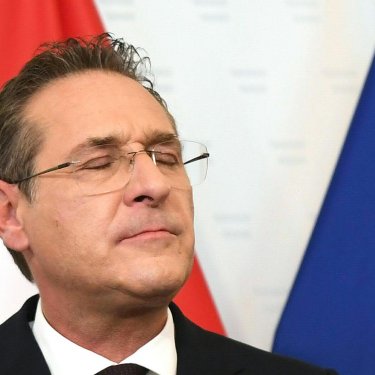Austria’s government must stop posing a threat to press freedom

Reporters Without Borders (RSF) condemns the readiness to resort to corruption to
gain control of media outlets that Austria’s far-right Freedom party (FPÖ) showed in a
secretly-recorded video that was released at the end of last week, precipitating the
government’s fall, and calls on Austria’s next government to disavow such practices.
Just hours after the video’s release, FPÖ leader Heinz-Christian Strache was forced to stand down as Austria’s deputy chancellor on 18 May and, shortly thereafter, four other FPÖ politicians had to resign as ministers in the coalition government, with the result that early elections have had to be called.
Filmed in Ibiza in 2017– shortly before the elections that enabled Strache’s party to become the junior partner in a coalition government – and published by two German media outlets, Der Spiegel and Süddeutsche Zeitung, the video shows Strache with a woman who is posing as the niece of a Russian oligarch.
In the video, Strache promises lucrative government contracts if the woman’s supposed uncle acquires a controlling share in the influential Austrian tabloid Kronen Zeitung and turns it into a pro-FPÖ outlet. This would not be difficult because “journalists are the world’s biggest whores,” Strache says.
Strache also expresses a readiness to remodel the Austrian media “like Orbán,” the Hungarian prime minister who has transformed his country’s media landscape in recent years, turning the state TV broadcaster into a propaganda machine and forcing many critical outlets to close.
“After Austria’s five-place fall in RSF’s 2019 World Press Freedom Index, we hope that this scandal will serve as a wake-up call and ensure that the next government ends its attacks on press freedom,” said Pauline Adès-Mével, the head of RSF’s European Union and Balkans desk.
The former deputy chancellor’s rhetoric is not new. Journalists have repeatedly been the targets of threats ever since the FPÖ entered the government in December 2017. Media reports have been subjected to verbal attacks and critical journalists have been stigmatized, labelled as “far-left” and accused of undermining government policy.
The verbal violence has led some journalists to censor themselves to avoid being hate speech targets. Many have complained of being hounded, as in Hungary, and obstructed when trying to cover government events. This was seen yet again at the press conference at which Strache announced his resignation, when some reporters were prevented from asking questions about the FPÖ’s attitude towards the media.
Because it was “recorded illegally,” the FPÖ’s lawyers have announced their intention to initiate “appropriate legal proceedings” in response to the video, presumably in Spain, where it was filmed.
The Declaration of Rights and Obligations of Journalists, known as the Munich Charter,
says journalists should “not use unfair methods to obtain news, photographs or documents” and should “respect privacy,” but the video’s public interest value and contribution to the public debate outweigh these considerations.
“When weighing the individual’s right to privacy against the public’s right to information, as they should, the journalists at Der Spiegel and Süddeutsche Zeitung decided in favour of the second, and they were right to do so,” RSF’s Adès-Mével added.
The day after the scandal broke, FPÖ interim leader Norbert Hofer said that he hoped the campaign for the snap elections would be “clean” and that he appreciated some journalists’ investigative reporting.



